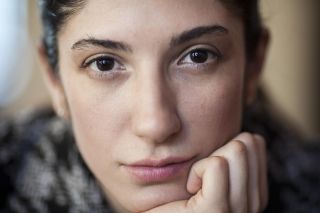Beauty
Image Management: Makeup Can Beautify or Backfire
How makeup transforms your appearance depending on your age.
Posted June 10, 2024 Reviewed by Lybi Ma
Key points
- Some adults use makeup to appear younger, as opposed to more attractive.
- Older people wearing makeup can be viewed negatively—by others close in age.
- Women look different in makeup, from their 20s to their 50s.
From sun protection to concealing flaws and creating movie-star glamour, makeup is a tried-and-true image enhancer. But does it look good on everyone? Research yields some interesting results.

Looking Younger Longer
Kyoung J. Baek (2020)[i] studied the perception of older adults wearing makeup, including the use of makeup by “new seniors,” defined as the baby boomer generation of people born between the years 1955 and 1963. Baek defines this group as having more economic power than previous generations of seniors, longer lifespans, and understandably, a high level of interest in managing appearances. He notes that within an era of societal emphasis on physical appearance, there is a healthy consumer demand for cosmetics among the elderly population.
Baek’s research studied perceptions and attitudes about makeup use by new seniors during the pre‐elderly stage. Through in‐depth interviews and participant video recording, he found that new seniors were prejudiced against elderly people using makeup and were more likely to wear makeup in pursuit of looking younger rather than more attractive.
But does it work?
Make Up – Age Down?
Richard Russell and colleagues (2019) studied how makeup affects perceived age.[ii] They note that wearing makeup emphasizes three features that are related to youth: facial contrast, skin homogeneity, and the size of facial features size, each of which can be manipulated by makeup to make faces appear younger. Using participants who estimated the age of photographs of faces with and without makeup, they discovered that 40‐ and particularly 50‐year‐old women appeared to be significantly younger when they wore makeup. They also note that contrary to the hypothesis, 30‐year‐old women looked no older or younger with or without makeup, and twenty-somethings appeared to be older when wearing makeup. Russel and colleagues replicated their results through two further studies, discovering that makeup caused middle‐aged women to appear younger while causing younger women to appear older.
Seeking to further understand why young women look older wearing makeup, Russell and colleagues discovered evidence indicating that people associate wearing makeup with adulthood, which may activate an “upward bias” on age judgments of women who are clearly not adults. Within this age group, a measure of judgment is important to avoid sexualizing youth, an understandably controversial topic when discussing putting makeup on children.
For adults, thankfully there are ways to use makeup to enhance appearance at any age.
True Beauty Is Ageless
Some of the most beautiful women wear very little makeup, showcasing healthy skin, natural beauty at any age, and often an authentic smile that can light up a room. For women who want to look natural but could benefit from some cosmetic enhancement, makeup artists boast an array of subtle strategies where less is more. Understated enrichment allows older women to look younger while avoiding appearing too “made up.” And of course, a variety of makeup products boast skin care protection as well as smooth coverage.
However, at any age, inner beauty expressed through kindness, compassion, and empathy, among other non-physical traits, can be the easiest form of attraction, and the most stunning expression of all.
References
[i] Baek, Kyoung J. 2020. “The Perception of Makeup for the Elderly and the Makeup Behavior of New Seniors.” Journal of Consumer Behaviour 19 (2): 160–70. doi:10.1002/cb.1801.
[ii] Russell, Richard, Carlota Batres, Sandra Courrèges, Gwenaël Kaminski, Frédérique Soppelsa, Frédérique Morizot, and Aurélie Porcheron. 2019. “Differential Effects of Makeup on Perceived Age.” British Journal of Psychology 110 (1): 87–100. doi:10.1111/bjop.12337.


